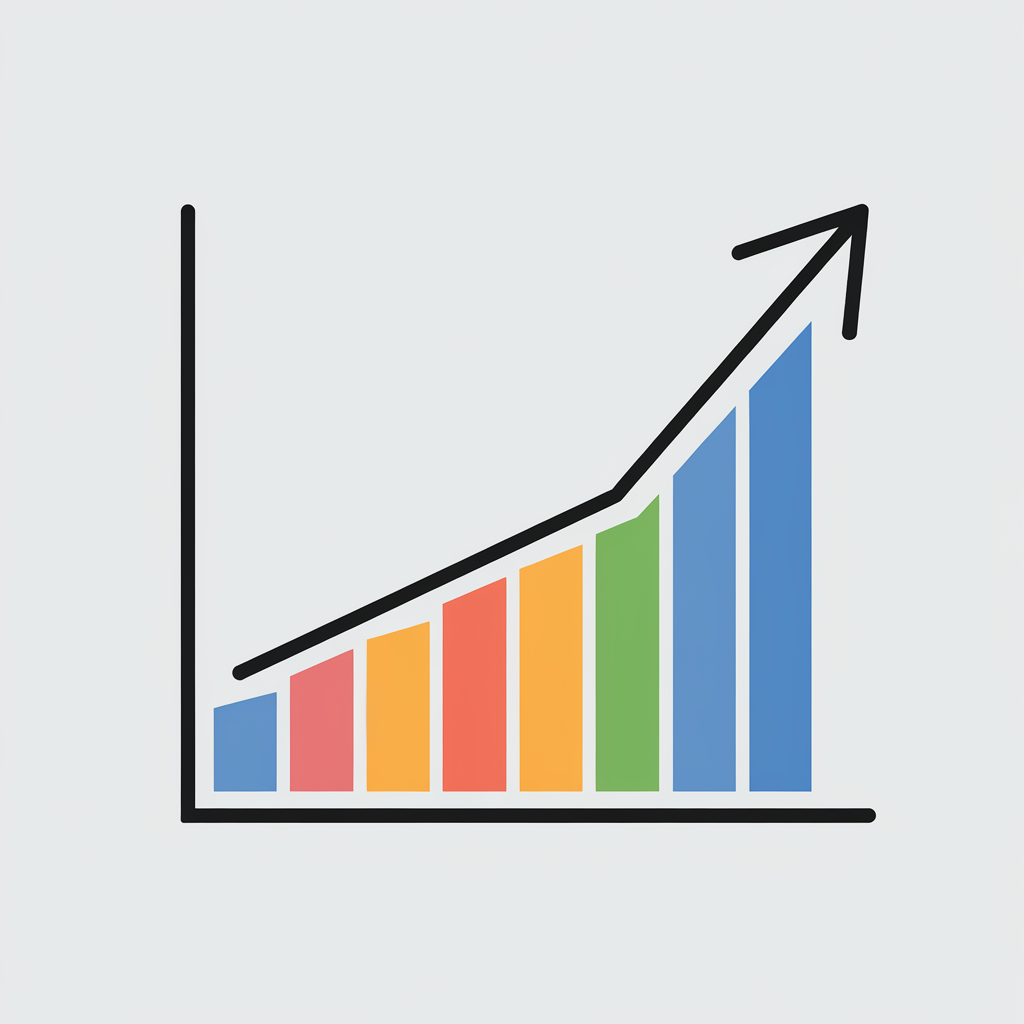Seasonal SEO automation involves leveraging AI tools and systems to optimize your website for seasonal trends. E-commerce businesses often experience fluctuating demand based on the time of year—holidays, weather changes, or specific events. With seasonal SEO automation, you can effectively manage these variations without manually adjusting your SEO strategy every time.
By automating SEO tasks, AI helps businesses stay relevant during peak seasons, capture more organic traffic, and maximize conversions with minimal effort.

Benefits of Automating Seasonal SEO
- Time-saving: AI handles repetitive SEO tasks like keyword research, content optimization, and performance tracking.
- Improved accuracy: Algorithms identify trends and patterns more accurately than manual methods.
- Increased efficiency: Automation can scale your SEO efforts, even for large e-commerce websites with multiple product categories.
- Better targeting: AI helps to align SEO strategies with shifting consumer behavior during seasonal peaks.
The Role of AI in Seasonal SEO Optimization
AI is crucial in optimizing seasonal SEO strategies. It analyzes vast amounts of data to predict trends, suggest the right keywords, and even help in content creation. For example, AI can track which search terms are gaining traction as a holiday approaches and adjust your SEO focus accordingly.
By integrating AI, businesses can stay ahead of competitors and provide more relevant content and offers to their audience at the right time.
The Importance of Seasonal SEO for E-commerce
Why E-commerce Businesses Need Seasonal SEO
For e-commerce businesses, seasonal SEO isn’t just important—it’s essential. As consumers’ purchasing behavior shifts with the seasons, so do search trends. During the winter holidays, for example, search volume for gifts, sales, and promotions spikes significantly. Businesses may miss out on valuable traffic and sales without adjusting SEO efforts to match these seasonal shifts.
Key Benefits of Seasonal SEO for E-commerce:
- Increase in targeted traffic: Optimize for season-specific keywords to capture customers actively searching for seasonal products.
- Higher conversion rates: Seasonal promotions and content lead to more relevant product recommendations and stronger sales.
- Enhanced brand visibility: Appearing in search results during peak seasons increases brand exposure and positions your business as a go-to for seasonal needs.
Identifying Seasonal Trends in Your Market
Before diving into seasonal SEO, it’s essential to understand the trends that impact your business. Identifying seasonal search patterns will allow you to target your audience at the most strategic times.
Tools and Techniques for Identifying Seasonal Keywords:
- Google Trends: Track search interest over time for specific terms and identify seasonal patterns.
- Keyword Research Tools: Platforms like SEMrush, Ahrefs, and Moz help identify high-volume seasonal keywords.
- Competitor Analysis: Monitor competitor websites to discover which seasonal keywords they target.
- Social Media Listening: Watch trending hashtags, keywords, and topics on Twitter and Instagram to understand customer needs.
Predicting Seasonal Traffic Spikes
You can predict when traffic will peak using historical data and AI-powered tools. These predictions allow you to prepare in advance by adjusting your SEO strategy, creating seasonal content, and ramping up marketing efforts ahead of time.
Tools like Google Analytics and AI-based SEO platforms can help you analyze trends from previous years to forecast future spikes in traffic. You can even set automated alerts to notify you when keyword performance shifts in response to a seasonal event.
How AI Enhances Seasonal SEO Automation
AI-Powered Keyword Research
Keyword research is the cornerstone of any SEO strategy, and it becomes even more critical during seasonal peaks. AI makes this process faster and more precise by analyzing vast amounts of data and identifying patterns you might miss manually.
Using AI to Analyze Seasonal Keyword Performance
AI-powered tools, such as Google’s RankBrain and others, can predict which keywords are most likely to drive traffic during specific seasons. These tools use machine learning algorithms to analyze how people search for products and services at different times of the year.
AI can help you discover long-tail seasonal keywords that your competitors may overlook. For instance, rather than just targeting “summer shoes,” you could target “best breathable summer shoes for hiking.”
Automated Keyword Suggestions and Content Optimization
AI tools can suggest keywords based on seasonal trends. They also recommend changes to existing content to make it more relevant for current searches. Instead of manually optimizing every product page for each season, AI automates these changes, ensuring your content remains fresh and optimized at all times.
For example, AI can automatically adjust meta tags, headers, and body content to align with trending keywords and phrases. It can even help you optimize your content for featured snippets, which can significantly improve visibility in search results.
Content Creation and Optimization for Seasonal Campaigns
Content is king in SEO, but creating fresh, engaging content for each season can be a time-consuming task. This is where AI excels. It can help generate content tailored to the season while ensuring it’s optimized for SEO.
AI-Driven Content Generation for Targeted Seasonal Marketing
AI tools can write product descriptions, blog posts, and landing page copy based on specific seasonal events or product launches. Using customer data, AI can personalize content to meet your audience’s preferences and needs.
For example, during the holiday season, AI can create blog posts about “top holiday gift ideas” or “how to shop for Christmas presents,” based on the most searched-for products. It can also generate personalized product recommendations based on browsing habits, ensuring your content resonates with individual customers.
Personalization of Content Based on User Data
AI can also help personalize the user experience by dynamically adjusting website content to match the user’s interests and past behavior. If a user previously searched for winter jackets, they’ll see more related seasonal offers when they return to your site.
AI can adjust banners, product recommendations, and even blog posts based on these insights. This level of personalization boosts engagement and increases the likelihood of conversions.
AI-Based Link Building
Link building is a crucial part of SEO, and AI tools can automate much of the process, helping you secure high-quality backlinks from authoritative sources during seasonal campaigns.
Automating Link-Building Efforts During Peak Seasons
AI-powered tools like Ahrefs and Moz can automatically identify link-building opportunities related to seasonal content. For instance, during summer, AI can suggest outreach efforts for blogs and websites discussing summer activities, where your products might fit naturally.
AI tools can also monitor competitors’ backlinks, helping you find gaps in your link profile that you can fill with high-quality seasonal content. Automating this process saves time and ensures you never miss an opportunity.
AI Tools for Identifying Link-Building Opportunities
AI can search for relevant websites, blogs, or influencers to collaborate with. It can also suggest keywords that are trending, helping you focus on creating linkable content around topics that are highly likely to gain attention.
Here’s a list of popular AI tools for link building:
- Ahrefs: Identifies top link-building opportunities and tracks seasonal link growth.
- BuzzSumo: Finds content with the highest engagement, perfect for link-building outreach.
- LinkAssistant: Automates the outreach process for securing backlinks from authoritative sites.

Setting Up Seasonal SEO Automation for Your E-commerce Site
Tools and Platforms for Seasonal SEO Automation
Now that you understand the power of AI in seasonal SEO, it’s time to choose the right tools for your e-commerce business. There are several platforms that specialize in automating seasonal SEO tasks, ensuring that you’re always one step ahead.
Popular AI-Driven SEO Tools for E-commerce Businesses
- SEMrush: Provides keyword research, competitive analysis, and seasonal trend tracking.
- Moz Pro: Offers keyword tracking and link-building automation tailored for seasonal campaigns.
- BrightEdge: Focuses on driving results through AI-driven SEO recommendations and performance tracking.
- Surfer SEO: Uses AI to optimize content for top-ranking keywords and seasonal variations.
These platforms integrate seamlessly with your e-commerce website, allowing you to set up automated seasonal SEO campaigns and manage everything in one place.
Monitoring and Adjusting Seasonal SEO Strategies
Continuous Performance Tracking with AI
Once your seasonal SEO campaigns are running, it’s crucial to monitor their performance. AI tools excel in tracking keyword rankings, traffic patterns, and conversions, offering real-time insights.
Automated Tracking of Seasonal Keyword Rankings and Traffic
AI-powered SEO platforms like Google Analytics and SEMrush provide continuous tracking of keyword performance. These tools offer reports that automatically update, saving you from manually checking rankings.
With seasonal keywords, you can track how they perform throughout the year and adjust as needed. For instance, if certain keywords are underperforming, AI can suggest adjustments to make your content more aligned with user intent.
Using AI to Optimize SEO Efforts in Real-Time
One of the standout features of AI in SEO is its ability to make real-time adjustments. For example, AI can detect shifts in user behavior, such as a sudden spike in interest for certain products during a holiday or weather event. Based on this data, AI can automatically tweak your website content, keywords, or even pricing to maximize conversions.
AI-powered tools like BrightEdge use machine learning to offer actionable recommendations based on real-time data, ensuring you’re always optimizing your seasonal campaigns.
Adapting Strategies for Upcoming Seasons
Seasonal SEO isn’t just about reacting to current trends. It’s also about preparing for future peaks. AI helps you adapt and stay ahead of the curve by predicting upcoming trends and adjusting your strategy accordingly.
Predicting and Preparing for the Next Season’s Trends
AI can analyze past seasonal data to predict when the next wave of interest will occur. For example, if you notice a pattern where sales of winter coats spike every November, AI can alert you in advance so you can prepare marketing content, adjust inventory, and optimize product pages.
Using tools like Google Trends or SEMrush, you can anticipate which keywords and products will be most relevant in the coming months. By understanding these trends, you can create targeted campaigns that will be live when your audience starts searching.
Adjusting Content and Keywords Based on Real-Time Data
AI not only helps you forecast future trends but also lets you tweak content and keywords on the fly. As the season progresses and new trends emerge, AI can update your SEO strategy to match the evolving landscape.
Here’s how to adjust:
- Update seasonal keywords: As trends shift, AI tools suggest new seasonal keywords to target.
- Revise content: Ensure that content, like blog posts and product descriptions, reflects the most up-to-date seasonal trends.
- Optimize for new search intents: As customer needs evolve, AI can help adjust content to align with changing queries.
By adjusting your SEO efforts based on real-time data, you stay ahead of the competition and ensure your campaigns remain relevant.
Breaking It All Down
The Future of Seasonal SEO with AI
AI is revolutionizing the way businesses approach seasonal SEO. As technology continues to evolve, its ability to optimize SEO efforts will only improve. From automating keyword research to personalizing content and predicting future trends, AI is becoming an indispensable tool for e-commerce businesses.
Long-Term Benefits of Incorporating AI into Your Seasonal SEO Strategy
The long-term benefits of using AI for seasonal SEO include:
- Sustained growth: AI enables consistent performance improvements, so your SEO efforts build over time.
- Scalability: As your e-commerce business grows, AI ensures that your seasonal SEO strategy can scale with it.
- Increased ROI: By automating SEO tasks and focusing on the most impactful strategies, AI helps you get the most out of your marketing budget.
How to Stay Ahead of the Competition with Ongoing SEO Automation
As AI continues to evolve, staying up to date with the latest tools and trends will keep your business ahead of the competition. Implementing AI-driven seasonal SEO strategies now gives you an edge that can set you apart from competitors who are slow to adapt. With AI’s continuous optimization and ability to predict trends, you can ensure that your seasonal campaigns are always top-notch.
By combining seasonal SEO with AI, your e-commerce site is poised for long-term success, no matter the season.
Frequently Asked Questions
Timing is crucial for seasonal SEO campaigns. AI tools like Google Trends and SEMrush can help predict when interest in certain keywords or products will rise. By monitoring these trends, you can launch your campaigns at the optimal time—usually a few weeks before the peak season starts. AI-driven insights can alert you to upcoming shifts in consumer behavior, ensuring your campaigns are set up well in advance.
Yes, AI can optimize your current seasonal content. Tools like BrightEdge and Surfer SEO analyze existing content and suggest changes to align it with trending keywords and search intents. AI can automatically update your blog posts, product descriptions, or landing pages with more relevant seasonal keywords, enhancing visibility and engagement without manual updates.
Absolutely! AI-driven SEO tools are scalable, meaning they can benefit businesses of any size. Even small e-commerce sites can use AI to automate keyword research, optimize content, and predict seasonal trends. By saving time on manual SEO tasks, AI allows smaller businesses to focus on growth and improve their seasonal strategies without a large team.
The cost of implementing AI for seasonal SEO varies depending on your chosen tools. Some platforms, like SEMrush and Moz, offer monthly subscription-based pricing, ranging from $100 to $400. Smaller businesses might consider more affordable or free options with basic features, while larger businesses might opt for premium tools with advanced functionalities. Consider your business’s budget and needs before choosing the right AI tools.
Many AI-driven SEO tools allow you to track performance across various platforms like Google, Amazon, and social media. Tools such as SEMrush and Ahrefs consolidate data from multiple sources, giving you a comprehensive view of how your seasonal campaigns perform across the web. This lets you adjust your strategy in real time to ensure consistent growth.
Integration typically involves installing a plugin or using an API that connects the AI tools to your e-commerce platform. Popular e-commerce platforms like Shopify, WooCommerce, and Magento support integrations with SEO tools like SEMrush, Moz, and BrightEdge. Most of these tools provide step-by-step instructions, and some offer customer support to help you integrate them smoothly.
AI tools make it easy to measure the ROI of seasonal SEO campaigns by tracking key performance indicators (KPIs) such as organic traffic, keyword rankings, conversions, and sales. These platforms provide detailed reports that break down the impact of each seasonal SEO effort. By comparing results before and after the campaign launch, you can see the direct effect of your seasonal SEO strategies and optimize future efforts accordingly.
AI can generate a wide range of content for seasonal campaigns, including blog posts, product descriptions, email newsletters, social media posts, and landing pages. AI tools analyze seasonal trends and customer behavior to create content that resonates with your target audience. Additionally, AI can help personalize content based on customer preferences, increasing engagement and conversions.
Yes, AI can assist with pricing optimization during peak seasons. AI tools can suggest optimal pricing strategies by analyzing competitor pricing, demand fluctuations, and customer behavior. This ensures your products are priced competitively during high-demand seasons, maximizing sales and profits.
Offsite Resources For You
Moz – A leading platform in the SEO world, Moz provides tools and resources for keyword research, link building, and performance tracking.
SEMrush – A comprehensive suite for SEO and digital marketing, offering tools for seasonal keyword research, competitive analysis, and more.
Ahrefs – Known for its powerful backlink analysis and keyword research tools, Ahrefs is perfect for optimizing your SEO efforts during peak seasons.
BrightEdge – An AI-powered SEO platform that helps you track seasonal trends and optimize content for maximum visibility.
Surfer SEO – A platform focused on AI-driven content optimization to improve your rankings with seasonal keywords and relevant content.
BuzzSumo – A content research tool that can help identify seasonal trends and track what type of content performs well during specific times of the year.

What’s Next?
The SEO tips on this page were provided by our co-founder, Matt LaClear. Since 2009, he has worked on over 13,277 SEO campaigns for clients. As a small business owner, you should take advantage of his special offer to receive a free custom SEO strategy call. This personalized consultation will provide you with the insights and strategies you need to help your business grow and thrive. Don’t miss out on this opportunity!

